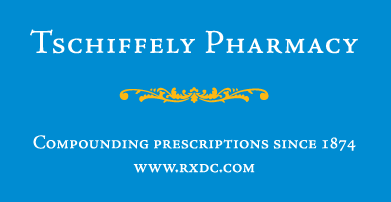
To Buy Augmentin Online Visit Our Pharmacy ↓

Unveiling Augmentin: Uses, Benefits, and General Information
Augmentin, a widely utilized antibiotic, plays a pivotal role in fighting bacterial infections, from respiratory issues to skin conditions 🦠✨. Comprising amoxicillin and clavulanate potassium, this medication workers synergistically to inhibit bacteria's growth, offering benefits in treating various ailments. Despite its effectiveness, it's imperative to follow a healthcare professional’s guidance to acommodate the right dosage and duration, ensuring safety and efficacy in the battle against bacteria.
Alcohol Meets Antibiotics: Peeking Behind the Curtain

When exploring the interaction between alcohol and antibiotics, particularly augmentin, it becomes crucial to sift through the wealth of information available. Many people may not be aware of the potential implications this combination could have on their health and recovery process. Diving into the scientific basics, alcohol can affect the way your body processes medications, including antibiotics like augmentin. This can lead to a decreased effectiveness of the medication and potentially prolong the illness or condition it was prescribed to treat. Understanding this interaction is the first step in making informed decisions about your health and ensuring that you are taking your medications as effectively as possible.
Unraveling the Myths: Augmentin and Alcohol Interaction
When exploring the dynamic between augmentin and alcohol, much of what we encounter online sits in a gray area, speckled with half-truths and outright myths. A common misconception is that consuming alcohol while on augmentin leads to dire consequences for every individual, a statement that lacks nuance. The truth is, while the combination might not be deadly, it definately can influence how your body processes the medication and its effectiveness in battling infections. This complexity invites a deeper investigation into how these substances interact within our bodies, urging a move towards informed decisions based on science rather than hearsay. 🧬🍷
Potential Risks and Side Effects of Mixing Both

Mingling Augmentin with alcohol may not only dilute its effectiveness but could also amplify side effects such as nausea, dizziness, and stomach upset. 🚑 While individual tolerances vary, the consensus leans towards caution to prevent any adverse reactions that could hinder your path to recovery. It's vital to consider that, while not always immediately noticable, the compounding effects of alcohol can significantly impair your body's ability to fight infections, putting an unnecessary strain on your system 🤒.
Expert Recommendations: Navigating through Safe Consumption
Navigating through safe consumption of Augmentin while considering alcohol intake involves understanding the potential effects on your body. Medical professionals commonly recomend that patients avoid alcohol during antibiotic treatment to reduce the risk of adverse reactions and to ensure the efficacy of the medication. Essential to this advice is recognizing that mixing alcohol with Augmentin may not always lead to severe consequences for everyone but can exacerbate side effects such as nausea, drowsiness, and dizziness. Therefore, prioritizing your health and adhering to guidelines provided by your healthcare provider is imperative. They will acommodate your specific health needs and lifestyle, offering tailored advice on managing medications and alcohol consumption. 🍷💊
Lifestyle and Medication: Finding the Right Balance
In navigating the tightrope between medications like Augmentin and everyday lifestyle choices, specifically the consumption of alcohol, it's crucial to strike a harmony that prioritizes health 🍃💊. This equilibrium is not only about adhering to medical advice but also about incorporating individual health goals and social habits in a manner that doesn't compromise treatment efficacy. Misconceptions around antibiotics and alcohol can lead to unnecessary abstinance or risky behavior. Understanding the nuances of how substances interact within our bodies enables us to make informed decisions that accommodate both our social life and our health regimens. Recieving clear, evidence-based guidance from healthcare professionals can illuminate the path to maintaining this balance, ensuring that treatment outcomes are not jeoperdized.